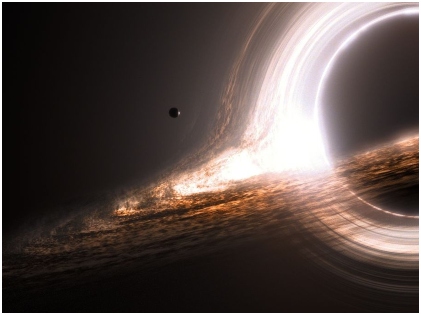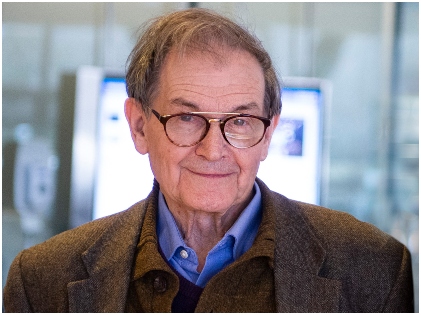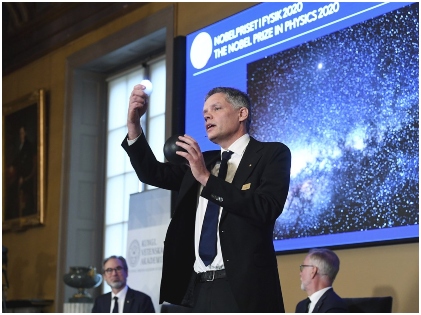The Nobel Award is one of the most prestigious accolades. From literature to World Peace, the acknowledgment of merit applies to numerous categories. In physics, The Royal Swedish Academy has decided this year to reward the prize to three scientists. It is in recognition of their work which has advanced our understanding of The Darkest Secrets of Universe: Black Hole.
Over the years, a lot of progress has happened to achieve the Black Hole breakthrough, but much more science could offer. When somebody digs deep to unearth some exciting facts about it, they should get credit for it. Accordingly, the efforts of Roger Penrose, Reinhard Genzel, and Andrea Ghez didn’t go unrecognized, as the trio won the 2020 Nobel Prize for their indispensable contribution to Black Hole research.
The Black Hole: The Darkest Secret Of The Universe
 Ever since the Event Horizon Telescope team came up with a real snap of the black hole, a new field of possibilities has opened to establish physics theories. Penrose, Genzel, and Ghez did some wonderful research to establish the cosmic monster’s spooky reality that sucks in everything (even light cannot escape its enormous gravitational pull). Without the emission of light, a black hole is invisible. One can trace it only through space telescopes and other advanced equipment.
Ever since the Event Horizon Telescope team came up with a real snap of the black hole, a new field of possibilities has opened to establish physics theories. Penrose, Genzel, and Ghez did some wonderful research to establish the cosmic monster’s spooky reality that sucks in everything (even light cannot escape its enormous gravitational pull). Without the emission of light, a black hole is invisible. One can trace it only through space telescopes and other advanced equipment.
The Argument
 Sir Roger Penrose is an eminent professor at the University of Oxford who was once associated with the legendary Stephen Hawking, explained the physical reality behind black holes. He has been working tirelessly to prove the relation between black holes and Einstein’s general relativity theory.
Sir Roger Penrose is an eminent professor at the University of Oxford who was once associated with the legendary Stephen Hawking, explained the physical reality behind black holes. He has been working tirelessly to prove the relation between black holes and Einstein’s general relativity theory.
He argued that although Einstein disapproved of a black hole, his general theory of relativity predicted otherwise. The theory predicted the formation of an ominous yet fascinating point of no return, the black hole. Penrose already boasts of several honors and accolades to his name, where the Nobel is a new feather in his cap.
A Black Hole Inside The Milky Way
 Astrophysicists Reinhard Genzel and Andrea Ghez from Max Planck Institute in Germany and the University of California, LA, won the other half of the prize. This was for finding out a mammoth-sized black hole in the Milky Way galaxy. With the help of some of the most powerful telescopes of the world, they could see through to the center of the Milky Way. An incredibly heavy object as massive as four million solar masses. The object could be a supermassive black hole whose existence has always been a research subject for the last 50 years now.
Astrophysicists Reinhard Genzel and Andrea Ghez from Max Planck Institute in Germany and the University of California, LA, won the other half of the prize. This was for finding out a mammoth-sized black hole in the Milky Way galaxy. With the help of some of the most powerful telescopes of the world, they could see through to the center of the Milky Way. An incredibly heavy object as massive as four million solar masses. The object could be a supermassive black hole whose existence has always been a research subject for the last 50 years now.
Together the three musketeers — Penrose, Genzel, and Ghez advanced our understanding of the awe-inspiring nature of black holes. And by doing this they solidified the hypothetical existence of it in reality. With this achievement professor, Andrea Ghez becomes the only fourth woman to earn the award. Her predecessors are Marie Curie, Maria Goeppert Mayer, and Donna Strickland.
The Search Has Finally Come To An End
 For decades, black holes have been only a theoretical object before it was spotted in the year of 1971. In 2019, things intensified when the Event Horizon Telescope captured the dark monster’s first image. This paved the way for many more studies in this area. The three-layered giant pulls everything that comes on its way. With his singularity theory, Stephen Hawking explained that once the particle crosses the inner layer of the Event Horizon. It then squeezes everything into a single object, and space-time no longer remains the same. Because of its constant gravitational force, nothing can come out of it, not even light.
For decades, black holes have been only a theoretical object before it was spotted in the year of 1971. In 2019, things intensified when the Event Horizon Telescope captured the dark monster’s first image. This paved the way for many more studies in this area. The three-layered giant pulls everything that comes on its way. With his singularity theory, Stephen Hawking explained that once the particle crosses the inner layer of the Event Horizon. It then squeezes everything into a single object, and space-time no longer remains the same. Because of its constant gravitational force, nothing can come out of it, not even light.
Astrophysicist Reinhard Genzel who is at Max Planck Institute for Extraterrestrial Physics, currently believes our galaxy will eventually get devoured by a black hole in the distant future, which could be a very long time from now on. Professor Roger Penrose was the first one who mathematically proved that forming a black hole is not science fiction but a robust consequence of relativity theory.
The mind-bending nature of black holes is so intensifying that the studies of these three Nobel-winning scientists will shed a lot of light on it. As we can’t see them directly, we can only observe the effects of this cosmic phenomenon. Unearthing the darkest secrets of the devilish black hole is like solving a big confusing puzzle. Still, once you are down to solve it, things become thoroughly interesting that opens new exploration areas.





